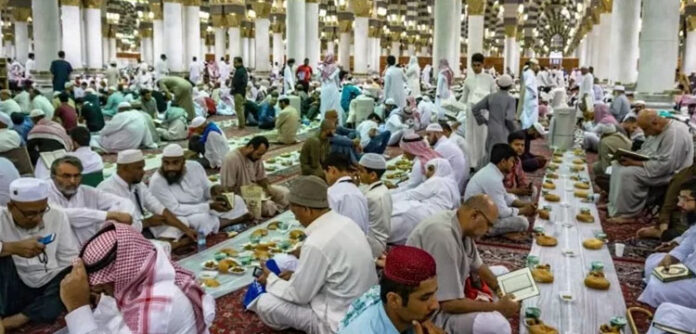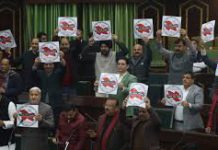With the arrival of Ramadan, authorities in Madinah have completed preparations for iftar at the Prophet’s Mosque (P.B.U.H), introducing new guidelines for meal providers to enhance the experience of worshippers.
According to Gulf News, the General Authority for the Care of the Two Holy Mosques has allowed service providers to add two extra food items to the standard iftar menu. Traditionally, the basic meal consists of dates, bread, yogurt, wrapped tissues, and water. This year, additional options such as nuts, cupcakes, pies, maamoul, cream, or stuffed dates will be permitted, offering a more diverse selection for fasting individuals.
To maintain high service quality, authorities have imposed strict hygiene and logistical requirements for meal providers. Only registered catering firms with prior experience in serving Hajj and Umrah pilgrims will be allowed to operate. Companies must meet the following conditions:
• At least three licensed refrigerated vehicles to ensure food remains fresh and safe.
• A designated packing facility of no less than 600 square meters to handle large-scale meal preparation.
• A clean operational record for the past two years, ensuring compliance with food safety and service standards.
Additionally, catering firms must work in close coordination with designated officials at the Prophet’s Mosque to ensure the smooth transportation and distribution of iftar meals.Authorities have emphasized their commitment to high food quality and service standards, ensuring a seamless and spiritually enriching experience for worshippers breaking their fast at this sacred site. The Prophet’s Mosque in Madinah is one of the most significant religious sites for Muslims, welcoming thousands of worshippers daily, particularly during Ramadan. The iftar service plays a crucial role in accommodating fasting individuals, and the updated guidelines aim to streamline operations while maintaining the sanctity of the holy site.
Officials have also urged meal providers to adhere strictly to the regulations, ensuring that food preparation and distribution align with health, safety, and logistical protocols set by the authority. Any violations could lead to suspension of permits or legal action.
With these new arrangements, authorities hope to provide an organized, clean, and spiritually fulfilling environment for those gathering at the Prophet’s Mosque during the holy month of Ramadan.




